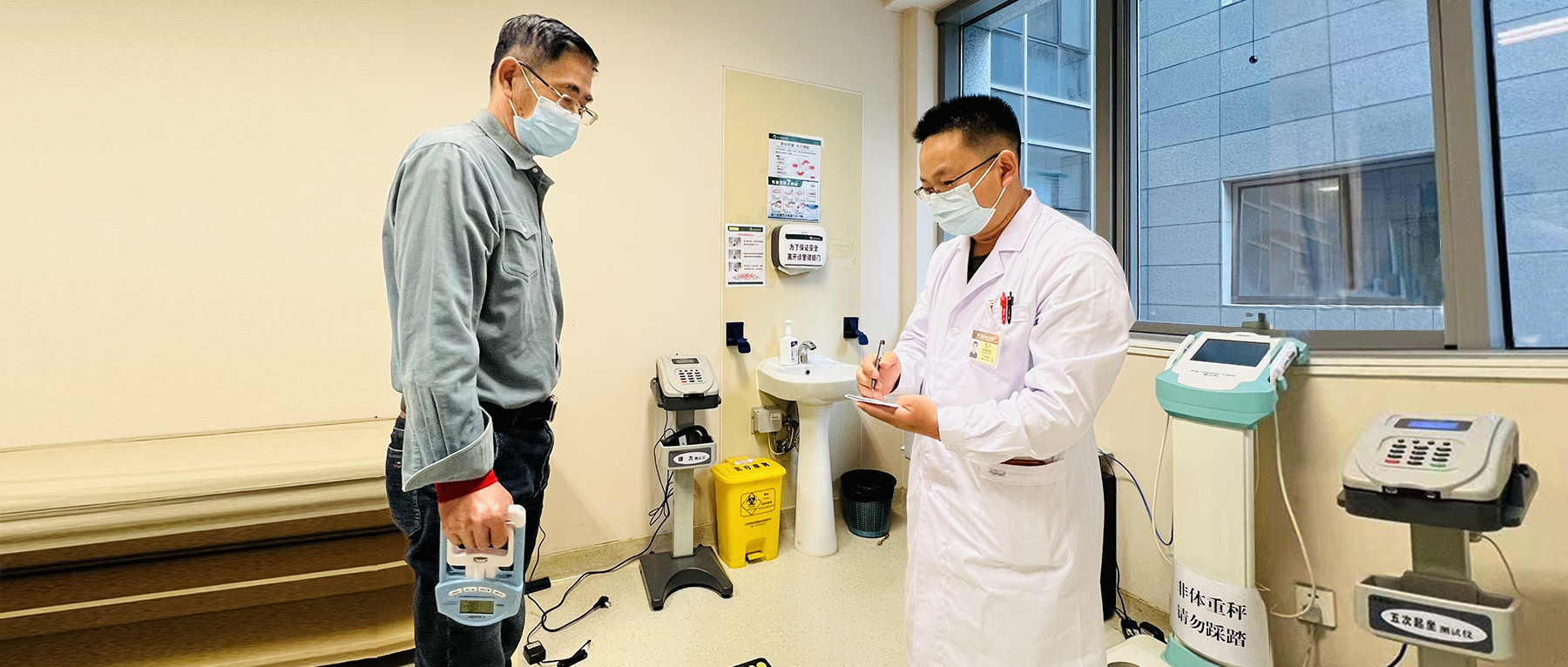In November 2022, PUMCH opened the first joint preoperative assessment (geriatric) clinic (hereinafter referred to as the “joint clinic”), in which geriatrics, anesthesiology, rehabilitation and other departments work together to take better care of geriatric surgery patients. Over the past 5 months of operation, the joint clinic, through preoperative risk assessment, has been able to find the best surgery time for elderly patients and improve their perioperative safety, earning sweeping recognition among elderly patients and relevant departments.

▲A patient was being evaluated in the joint preoperative assessment (geriatric) clinic
With many comorbidities and complex medications for their underlying conditions, elderly patients often need to visit multiple specialties to evaluate their underlying conditions separately before surgery, which not only increases the time cost of patients, but also upsets patients and their families who do not appreciate the need of doing so. Now, patients only need to make an appointment for the “joint preoperative assessment (geriatric) clinic” to access one-stop services including anesthesia risk assessment and optimization, pre-rehabilitation education, fine-grained functional assessment, rehabilitation management and advice, assessment of common underlying conditions and nutrition improvement, as well as rational advice on postoperative expectations.
After making an appointment for the joint clinic, patients first visit the Department of Anesthesiology. In the case of an elderly patient with many underlying conditions or nutritional deficiencies, the anesthesiologist in the joint clinic will refer the patient to the relevant specialized departments immediately, who can receive evaluation on a walk-in basis.
The joint clinic also provides possible new options for elderly patients with severe underlying conditions and thus in a “dilemma”. The internist will discuss with them and assess the need for surgery by weighing the risks and benefits of surgery. This approach of joint decision-making helps reduce perioperative risks.
The Department of Rehabilitation plays an important role in the joint clinic: better assess the performance of the heart, lungs and other organs during exercise via physical assessment and functional training and thus provide more information for other steps; help patients optimize the function of respiratory, cardiovascular and muscular systems before surgery (especially for patients with already reduced reserve functions) to better prepare for anesthesia and surgery and ensure medical safety; educate patients about rehabilitation and give the necessary guidance at an early stage to steer patients through the perioperative period without a hitch, mitigate functional decline and facilitate post-operative recovery.
In the future, the hospital will facilitate more specialties to join the joint clinic and run various pilot partners to ensure the perioperative safety of patients in a more efficient and thorough manner.
Written by Hong Chengwei and Chen Xiao
Translated by Liu Haiyan
Edited by Wang Yao
